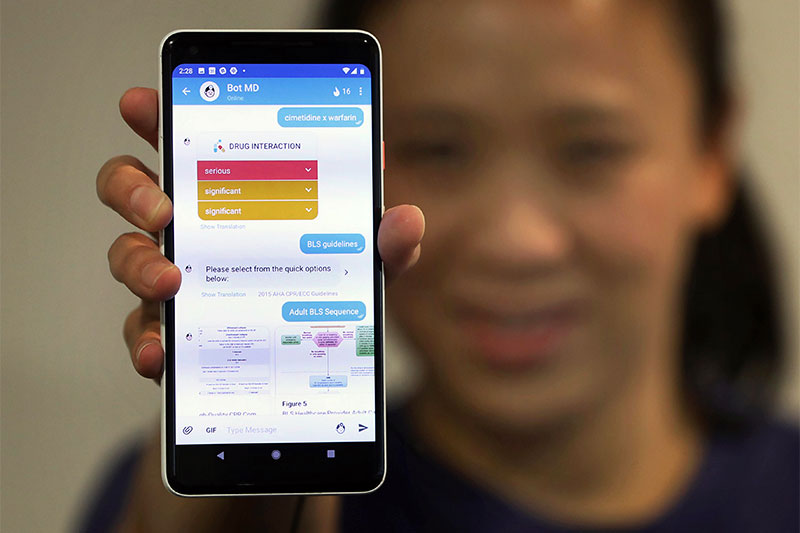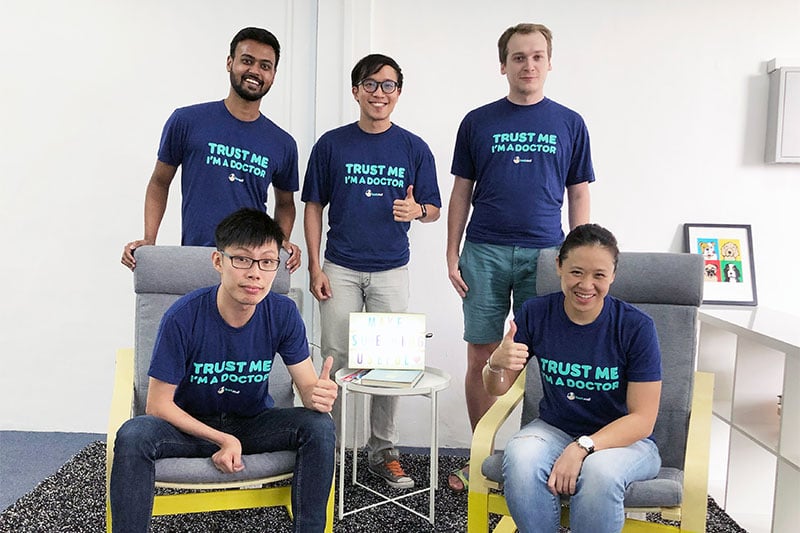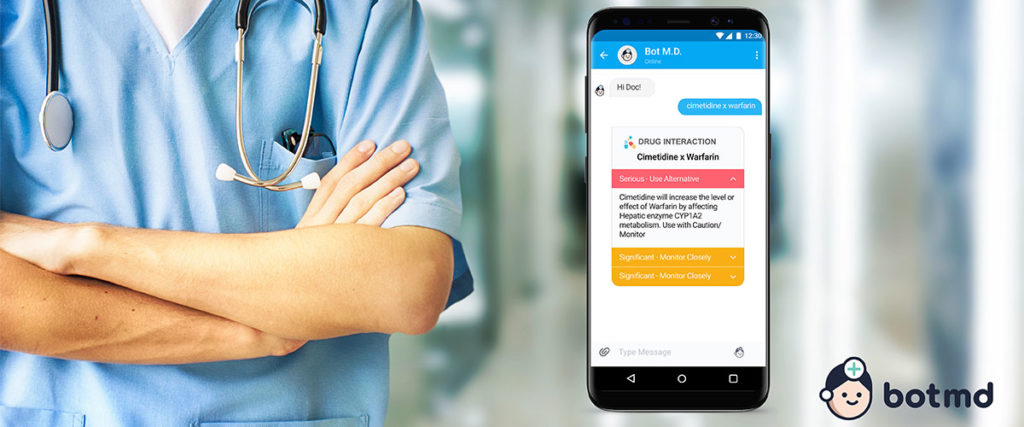Dorothea Koh, founder of Bot M.D., a mobile A.I chatbot app for doctors, sat down with Hive Life to discuss the startup’s mission and how the application is on its course of empowering doctors with artificial intelligence.
Dorothea Koh, a biomedical engineer and founder of Bot M.D., has long envisioned creating a tool to empower doctors across the globe, wherever they may be practising. Having worked in the healthcare sector of large emerging markets for more than a decade, she is familiar with the problems medics face. “What frustrated me most is that, whilst these markets are really big, if you were a young, inexperienced doctor, where would you go for information? In Western markets, there are all sorts of system embedded in hospitals to help doctors. However, in emerging markets, they often don’t have that luxury.”

In order to fill that gap, Dorothea began brainstorming the idea of creating a mobile app for doctors. “The constant that always improves fastest in these markets is smartphone penetration and data connectivity. When I was in Indonesia, even though the whole country didn’t have internet coverage yet, we noticed that all doctors had smartphones.” So she teamed up with co-founder Sim Yanchuan to create Bot M.D., an A.I. chatbot that aspires to serve as a doctors’ best clinical assistant.
Before the launch of Bot M.D., Dorothea experimented with a Facebook Messenger ChatBot to test out the feasibility of the idea. “Doctors who tried the application actually didn’t realise that I was the person behind it! However, the overwhelmingly positive result inspired us to create something more automated,” she explains. The resulting digital clinical assistant performs many roles. Its primary function is to help doctors look up clinical information gathered from peer-reviewed journals and trusted medical websites, whilst its voice-to-text transcription function helps doctors organise and collate case notes automatically in 50 different languages. And, to keep things engaging, it also entertains doctors with jokes and gifs to brighten up their day.

The core technology behind Bot M.D. is Natural Language Processing (NLP). “The whole goal of what we are trying to do is to understand unstructured texts. Doctors are busy people. If they have a question, they need to have the answer instantaneously. NLP allows us to return with the most precise response based on the question received,” says Dorothea.“The most important thing doctors want to know is whether they can trust the source. We usually start with known medical sources, like Medscape, journals and international medical associations. With this kind of filter, they will not get consumer information that appears on search engines like Google.” The app for doctors also continuously learns from its previous interactions to further refine its search results. “By aggregating user queries, we can improve the intelligence of the application and train the computer to become better over time.”
Since the conception of Bot M.D. at Y Combinator in June 2018, the app for doctors has attracted USD 1.6 million capital investment from prominent investors such as Floodgate and Steve Blank. Since its official launch in July 2018, it has already reached doctors in more than 60 countries around the world, with predominantly positive feedback. “They really like the speed at which they are able to get answers from Bot M.D. The voice detection function is also quite popular. A doctor from Venezuela actually told us that the function saved him a lot of time. Before, he needed to type up his case notes on one computer which he shared with 8-10 doctors.”
Though the app for doctors was only launched a few months ago, Dorothea and her team are already thinking about its next version. “We want to get doctors’ feedback, iterate and introduce new features. In January 2019, we will roll out a feature allowing doctors to teach Bot M.D. on the fly, customising what the chatbot can learn for them.” And, at its end, Bot M.D. hopes to have a revolutionary impact not only on doctors but also on their patients. “We want to be behind doctors,” says Dorothea. “We still have a lot of work to do, but we can see the amplification effect.”
Related Articles
How Medical Robotics Will Transform Healthcare in APAC
Could AI Robots Perform Brain Surgery? This Taiwanese Company Thinks So.




